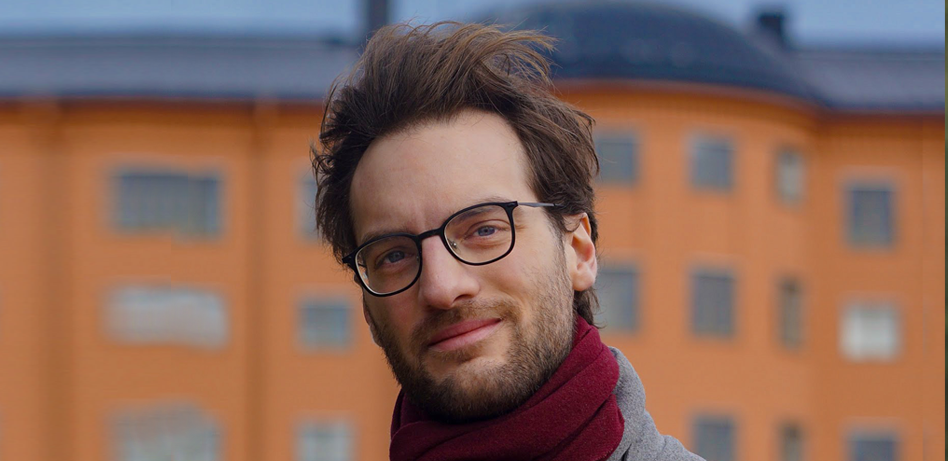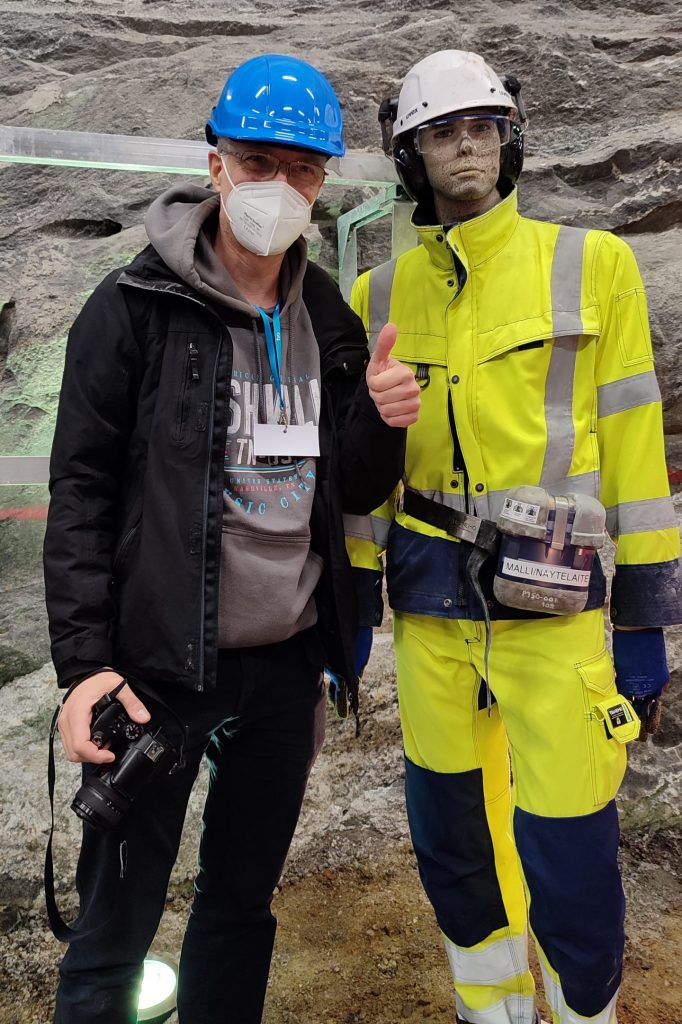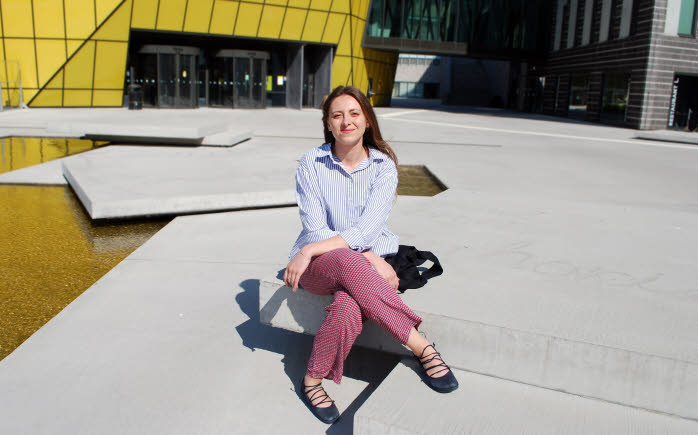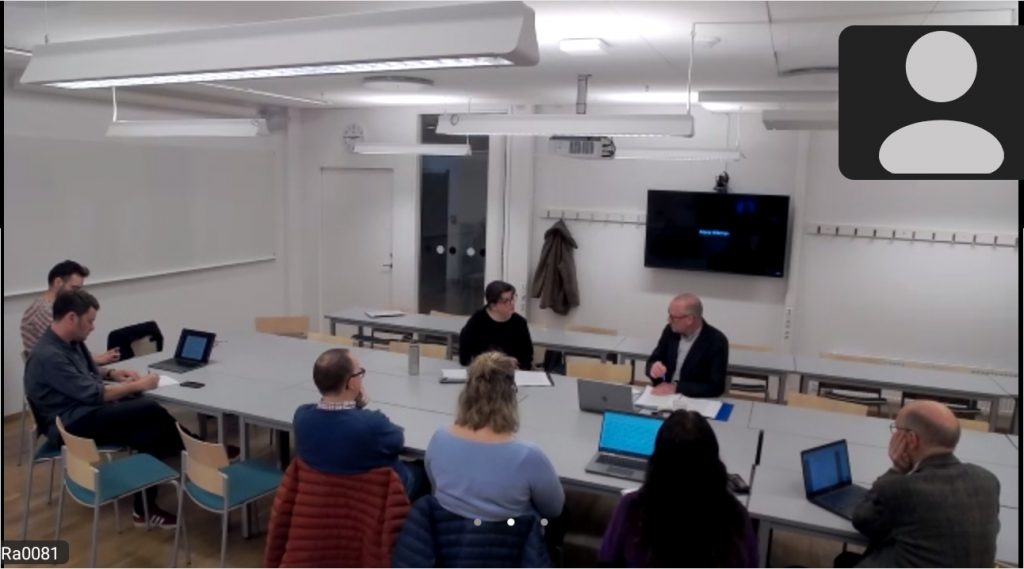Gustav Wollentz co-managed and Cornelius Holtorf participated, together with ca 90 others, in the online Foresight Workshop “Insight into the Future” organised by ARCHE, the EU-funded Alliance for Research on Cultural Heritage in Europe (4 April 2023).
Cornelius Holtorf and Anders Högberg participated in the third meeting of the Expert Group on Awareness Preservation (EGAP) within the project on Information, Data and Knowledge Management (IDKM) at the Nuclear Energy Agency, held at the OECD in Paris, France (17-19 April 2023). They held presentations on “Heritage Processes” and “Futures Literacy” respectively. Cornelius Holtorf undertook among others to prepare for the EGAP Task Force on International Mechanisms a short document on the opportunities for long-term memory provided by the 1972 UNESCO World Heritage Convention.
Cornelius Holtorf had an informal meeting discussing ongoing priorities and shared interests with Mikael Schultz (Deputy Permanent Representative for UNESCO) and Louise Oscarsson (Attaché for UNESCO) at the Delegation of Sweden to the OECD and to UNESCO in Paris, France (17 April 2023).
Cornelius Holtorf had an informal meeting with Christin Pfeiffer, Head of Futures Literacy and Foresight, at UNESCO, Paris (20 April 2023).
Cornelius Holtorf had an informal meeting with Berta de Sancristobal, Head of Unit, and Stefanie Grüssinger, Junior Professional Officer in the Unit for Europe and North America, at UNESCO’s World Heritage Centre, Paris (21 April 2023).
Cornelius Holtorf had an informal meeting with Beate Strøm, Directorate for Cultural Heritage of Norway, currently seconded to the Unit for Europe and North America at UNESCO’s World Heritage Centre, Paris (21 April 2023).
Cornelius Holtorf presented a lecture on “Conflict Resolution, Conflict Prevention and Cultural Heritage” to the Student Society Linnaeus Kultura at Linnaeus University, Kalmar, Sweden (26 April 2023)
Cornelius Holtorf submitted a response in the Consultation of UNESCO Chairs and Category II Centers on the implementation of the United Nations’ 76/214 Resolution on Culture and Sustainable Development (Reporting period: June 2021 –June 2023) conducted under the aegis of UNESCO in view of the preparation of the United Nations Secretary-General’s report on the implementation of Resolution 76/214 on Culture and Sustainable Development, to be presented at the 78th United Nations General Assembly in September 2023 (5 May 2023).
Cornelius Holtorf attended a webbinar organised by the Swedish Foresight Network on “Where do Imagined Futures come from?” featuring Riel Miller, formerly Head of Foresight and Futures Literacy at UNESCO (8 May 2023). Among other things he said, Riel Miller encouraged the audience to “be good compost” in the future.
Anders Högberg attended a half-day seminar at Malmö Museum on the topic ”Nuclear Cultural Heritage: How are we to remember the Barsebäck nuclear power plant in the future?” (10 May 2023).
Cornelius Holtorf submitted comments on the draft Key Information File (KIF) containing essential information on the spent nuclear fuel repository in Forsmark, Sweden, prepared by Thomas Keating as part of a project at the University of Linköping funded by the Swedish Nuclear Fuel and Waste Management Company (SKB) (12 May 2023).
Cornelius Holtorf attended virtually the 2023 Annual Meeting of the American Institute for Conservation in Jacksonville, Florida, USA attended by some 900 registered participants. For the conference, he had co-organized (with W. Wei) a General Session on “Preserving the Legacy of Humanity: What Is It That We Want to Preserve?” (19 May 2023).
Cornelius Holtorf assisted Bill Wei in running a Socratic Dialogue on the question “Was würdest Du auch für die Nachhaltigkeit nicht aufgeben wollen. Warum nicht?” at the Conference Angst. Ekel. Scheitern. Ein Symposium zu den blinden Flecken der Nachhaltigkeit, at Oberhafen Hamburg, Germany (25 May 2023).
Anders Högberg presented a research seminar on “Futures Literacy: what it might mean for archaeology and heritage practices” at the Saxo Institute, University of Copenhagen, Denmark (26 May 2023).
Cornelius Holtorf and Tomas Nilsson held a conversation on “Storytelling, hope tourism, and future-making after the Great East Japan Earthquake in 2011” in a research seminar at the Department of Marketing och Tourism Science, Linnaeus University, Växjö, Sweden (7 June 2023).
Cornelius Holtorf presented the annual Alumni Lecture on “Why cultural heritage is about the future (not the past)” for the Masters students in Archaeology and Heritage Studies at the University of Aarhus, Moesgård, Denmark (9 June 2023).
Cornelius Holtorf discussed future collaborations with Adam Gordon, UNESCO Chair in Anticipatory Leadership and Futures Capabilities at the University of Aarhus, Aarhus (9 June 2023).
Cornelius Holtorf participated in the 5th virtual UNESCO Chairs Seminar on “Science Benefitting Society: the role of the right to science” featuring not only Keith Holmes, UNITWIN/UNESCO Chair Programme Team at UNESCO and Helle Porsdam, UNESCO Chair in Cultural Rights at the University of Copenhagen, Denmark (14 June 2023).
Cornelius Holtorf presented for an audience of almost 50 conference participants on “How can culture and heritage contribute to empowering futures?” at the 23rd Futures Conference 2023 Empowering Futures – Long-term Governance, Democracy and Futures Research, Finland Futures Research Centre and Finland Futures Academy of the University of Turku, Finland (16 June 2023).









[…] The new funding for this and a number of additional smaller projects, means that the Climate Heritage Network is…
[…] Chair on Heritage Futures « Culture, cultural heritage and COP26 […]
[…] mer på Unescoprofessurens blogg http://blogg.lnu.se/unesco/?p=1061 Besök Öland 2050! […]